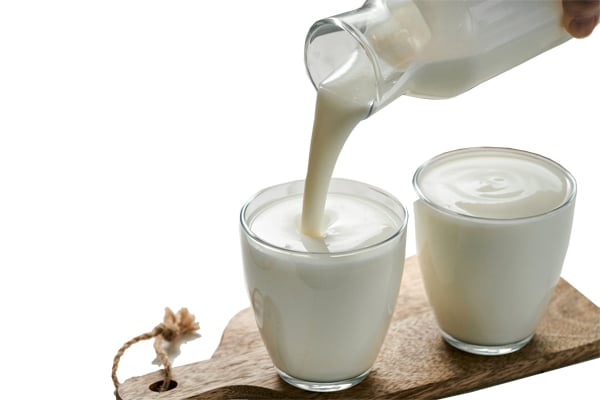Improve your bone health with bongo

Research suggests that bongo, and other such fermented products are easier to digest, especially for people who have milk allergies or are lactose-intolerant.
What you need to know:
- Bongo, popular in western and central Uganda, is produced through fermentation of milk. Research suggests that bongo, and other such fermented products are easier to digest, especially for people who have milk allergies or are lactose-intolerant.
Bongo or ‘sour milk’ is traditionally fermented milk, slightly lighter than yoghurt.
Bongo, according to Felista Nakasiita, a nutritionist at Nsambya Hospital, is produced by fermenting unpasteurised milk.
Fermentation of milk increases the digestibility of nutrients, nutritive value and makes nutrients more available for intestinal absorption.
“Milk contains protein, lactose, fats, minerals, traces of vitamins, and water. Bongo is a better alternative to milk due to its nutritional benefits and probiotics potential,” Nakasiita says.
There is a special bacteria added to regular milk to make fermented milk. This breaks down the milk proteins and the sugar (lactose), which helps people digest milk better, especially people with allergies to milk protein or people who are lactose intolerant, according to Webmd.com.
While in some areas bongo is taken plain, other consumers add other beverages like millet porridge. It also has a sweet-sour taste, the reason some people want to add a sweetener to make it sweeter. The different benefits of bongo may include;
Reduce the severity of diarrhea
According to Nakasiita, bongo may help in reducing diarrhea related to antibiotic treatment or rotavirus in children.
Early research, according to Webmd.com, suggests that using a specific fermented milk product (Actimel) containing multiple types of bacteria reduces the length of time needed to stop otorrhoea in children six months to five years old.
Ulcers
Maintain the natural balance of good bacteria in the digestive tract helps to fight off the bad bacteria.
The good bacteria in fermented milk helps in fighting helicobacter or h. Pylori, according to Nakasiita..
Bone health
According to study by researchgate.net, after supplementing the diet of preschool children with fermented milk for nine months, there were reports of improved nutrient intake, lower incidence of respiratory infections and diarrhea, greater height, and weight gain, and greater bone mineral density.
The study also showed that this also lowered risk for hip fracture by 20 per cent in older adults, and less bone loss over foue years, compared to those with a low intake of these dairy foods.
Nakasiita attributes this magic to bongo’s calcium and phosphorus nutrients that are important for strong bones and teeth.
Weight management
While yoghurt is commonly known as the best probiotic food, according to Healthline, Bongo is a much more potent source.
Probiotics (microorganisms) in kefir may influence health in numerous ways, aiding digestion, weight management, and mental health.
Probiotics in fermented dairy products, according to Nakasiita, are also believed to reduce tumor growth by stimulating one’s immune system. In addition to these, fermenting milk increases its shelf life other than letting it go to waste.
There are not many manifested side effects of bongo, but depending on different people consuming it, there could be few cases of stomachaches especially when taken in more than enough content found in food.
Low blood pressure
This can be beneficial to people with high blood pressure, but at the same time not so much in people who are already experiencing issues of low blood pressure.
According to Webmd.com, fermented milk may help in lowering blood pressure. Therefore, one with the already lowered pressure may face the risk of their pressure becoming too low.
Taking it in limited quantities may be helpful in that case.
According to Nakasiita, preparation is also mandatory for a standard outcome.
“Standard hygienic practices should be observed during the preparation of bongo to prevent contamination with harmful bacteria like E. Coli and Salmonella,” she said.
Nakasiita adds that contamination with such harmful bacteria can render the health benefits of bongo useless.




